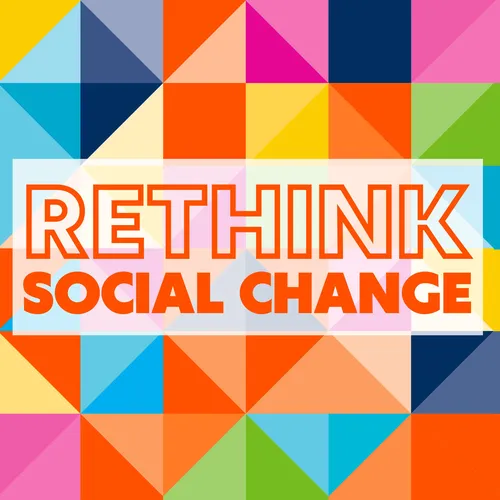ReThink Social Change Cards in Action
- Author
- Ratiba Cherif
- Published
- Mon 16 Dec 2024
- Episode Link
- https://share.transistor.fm/s/b8ed666e
Social change. That process through which societal norms, values, structures, and practices evolve is anything but simple. It's messy, it’s dynamic and it’s unpredictable. For years, I’ve been toying with one question: how do we design initiatives that are not only effective but truly meaningful in a world that is neither linear nor static?
In this ever-shifting landscape, the pressure on #NGOs and #CSOs to deliver is relentless. Less funding. Tighter deadlines. Fiercer competition. I know that rush all too well. The race to finalize reports after countless rounds of edits, the scramble to execute activities amidst the ebb and flow of collective action, the mad rush of chasing partners' financial reports delayed an unforeseen challenges to finally report our spending.
I’ve been there: charging forward, head down, ticking boxes. Getting the job done.
But as Harvard Business School Professor Giada Di Stefano reminds us in « Learning by Thinking: How Reflection Aids Performance », we should do less doing and more thinking.
When I put on my M&E (monitoring and evaluation) glasses, I see the missed opportunities for learning and reflection. It’s not for a lack of willingness but often a lack of prioritization and organizational will, despite what’s written in strategies or program documents. Moments for genuine inquiry and deep understanding are rare, and when they happen, they’re often structured in ways that fail to allow for, let alone, capture the richness of multiple perspectives.
In 2016, I set out to change that. I designed the ReThink Social Change Cards as a thinking kit to help changemakers reflect on what they do, how they do it, and the impact they’re having, especially within the constraints and complexities of their contexts. The cards are a tool for clarifying approaches, mapping strategies, sparking bold ideas to be able to drive meaningful action. 🌟
Since then, I’ve used them to facilitate reflection sessions with clients to help them navigate the complexity of social change programming. And as some of you know, I have been using them to guide conversations with podcast guests for a year now.
Curious about what they are and how they work? In this episode, I unpack the structure of the cards, how I use them, and how they help tackle the messy realities of social change. I even dive into a concrete example to make it real.
Reflection isn’t just a pause. it’s a recalibration; an actualization. It’s how we realign our teams, rethink our approaches, and ultimately unlock more profound change.
How do you use reflection to fuel your work? Let me know in the comments below.
Kevin L. Brown’s "The Theory of Change Cheat Sheet" I used to walk you through an example can be downloaded here: https://kevinlbrown.substack.com/p/a-theory-of-change-cheat-sheet
You can contact me on: [email protected] or DM me on Linkedin https://www.linkedin.com/in/ratiba-taouti-cherif-3299002/
#SocialChange #Reflection #MeaningfulAction #ReThinkSocialChange
